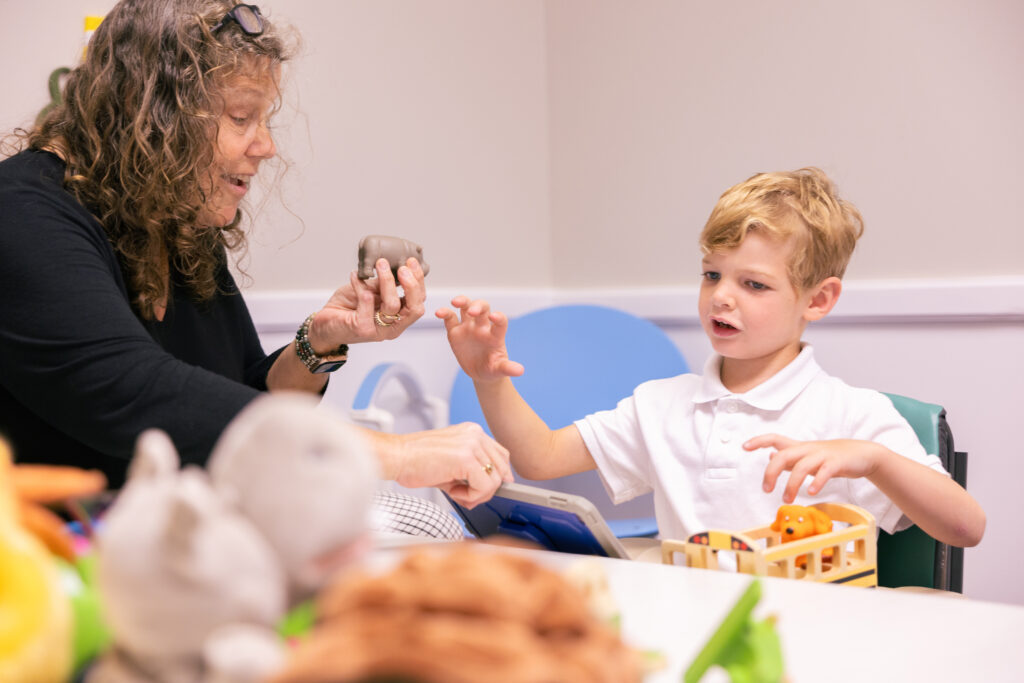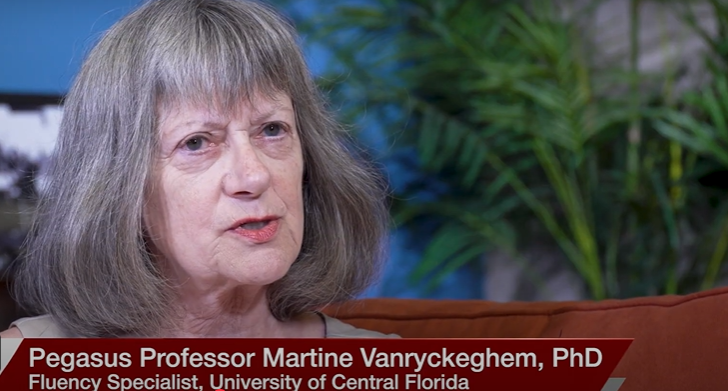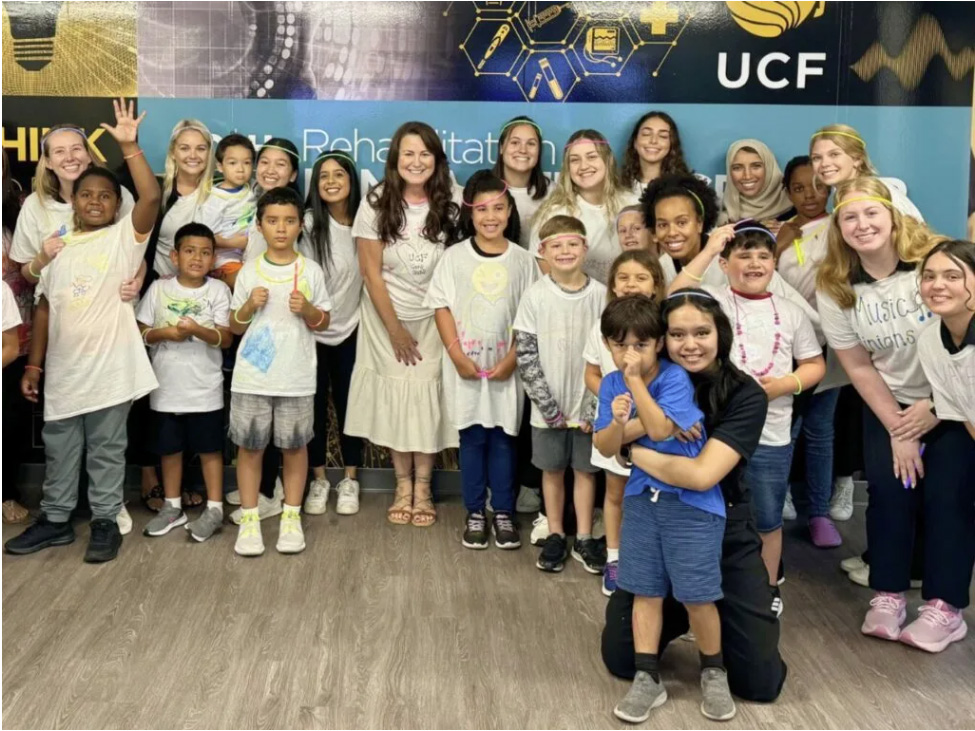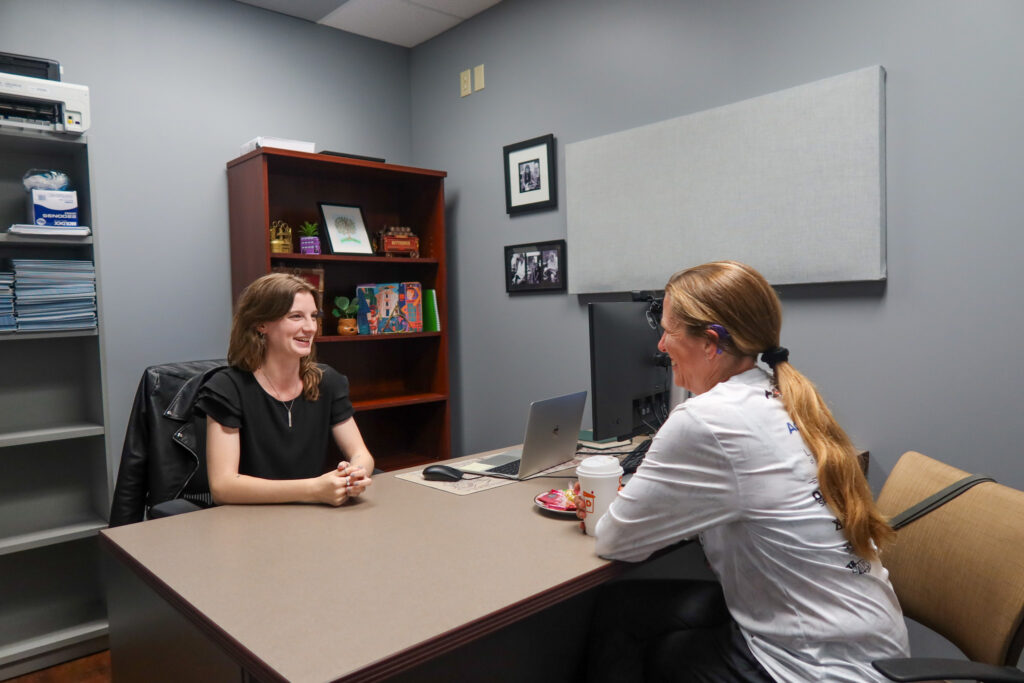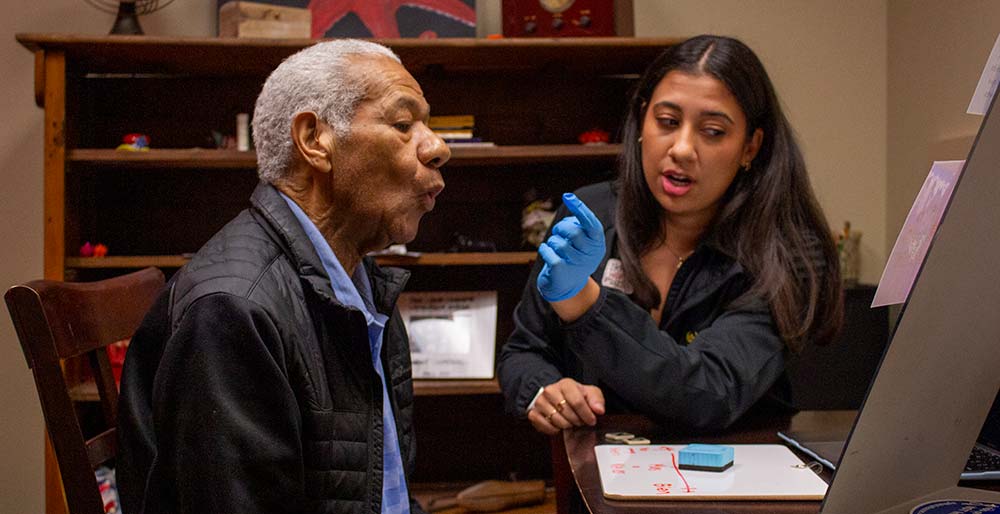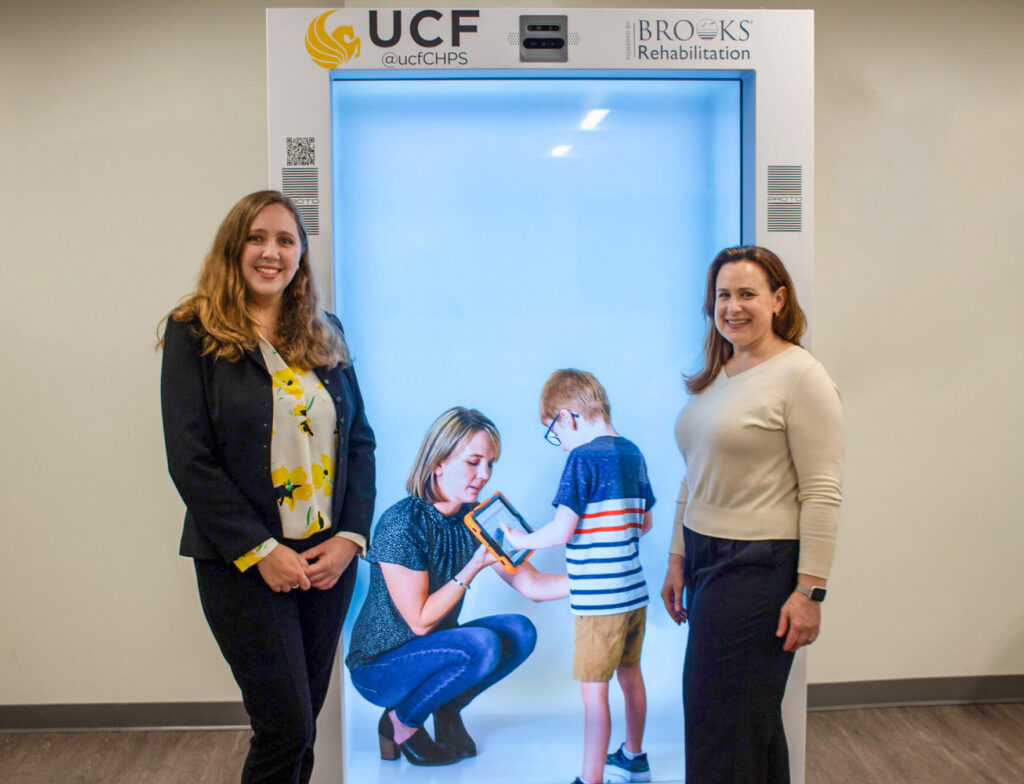In a video taken on Carlos Caram Dallapiccola’s first day at the University of Central Florida’s Aphasia House, his limited verbal speech is punctuated by the word, “Disculpa.” Aphasia House is an intensive outpatient therapy program for individuals with aphasia. Dallapiccola is Aphasia House’s third international client – he is from Brazil – and the word he kept saying meant “Sorry.”
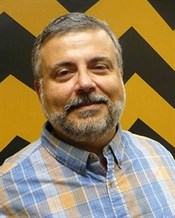
Before Dallapiccola had a massive stroke in 2011, he had a successful business in international education that promoted study programs for adults, teenagers and children in various countries. Through the years, his company – which also included his wife Daniela – had placed more than 2,000 students in programs outside Brazil.
It was a career he enjoyed because it relied heavily on his exceptional interpersonal, organizational and creative abilities. In his spare time, Dallipiccola enjoyed spending time with Daniela and their three sons.
They had a full life.
Until, Dallipiccola said, the “tsunami of aphasia” washed it all away. The greatest irony, perhaps, is that Dallipiccola, bilingual in Portuguese and English and highly sought after for his skills as an interpreter, has been robbed of his voice. He doesn’t “look” different. His warm, brown eyes still sparkle when he meets a guest, and he uses gestures to emphasize his point, along with his handwritten block letters on white paper.
A stroke happens when interrupted blood flow to the brain results in cell death, and for a time after his stroke, Dallipiccola’s family worried that he would die. He recovered 70 percent of his motor skills, he said, and his intellectual abilities are “almost intact,” but he acknowledged his serious limitations due to the loss of his speech.
In the past five years, Dallipiccola exhausted the therapy options that were available in Brazil, and used email and the internet, his lifelines to the outside world, where he discovered Aphasia House.
Janet Whiteside, Ph.D., is the founder and director of Aphasia House, which opened in 2010. It was the culmination of a dream that began when she was a graduate student at Vanderbilt University in 1974, and she had the idea that people with communication disorders, like stroke survivors, would benefit from therapy in a more natural, homelike setting.
At Aphasia House, clients can receive their therapy in the “Garage,” “Den,” “Garden Room,” “Kitchen,” or the “Game Room.” The rooms are stocked with familiar items and comfortable seating where clients and their families can learn the best ways to maximize their communication with their friends, family and the outside world.
In his emails to Aphasia House, Dallapiccola was clearly looking for help for his aphasia. He knew that he would have to leave his family behind to concentrate on regaining his voice. That, he said, was the key to gaining some semblance of his old life back.
After showing a visitor copies of his old emails, Dallipiccola proudly showed a visitor a new video of himself. This time, he said, quite clearly, “I love you, Dani!” His wife and children have not yet been able to travel from Brazil to visit Dallipiccola at Aphasia House. Dallipiccola’s therapy was covered, in part, by a private foundation that works closely with Aphasia House.
Dallipiccola still has hurdles to overcome. Five years of dealing with aphasia and apraxia (a motor disorder that also affects speech) have caused him and his family to have some low points, but he tries to remain positive. “I am tough,” he writes, “But I am not a machine!”
He used to feel as though he were “stuck in a maze with no exit.” But now, the compassionate graduate clinicians and educators at Aphasia House have given him hope. “Dr. Whiteside is an angel,” Dallipiccola wrote, and underlined the word “angel” twice.


